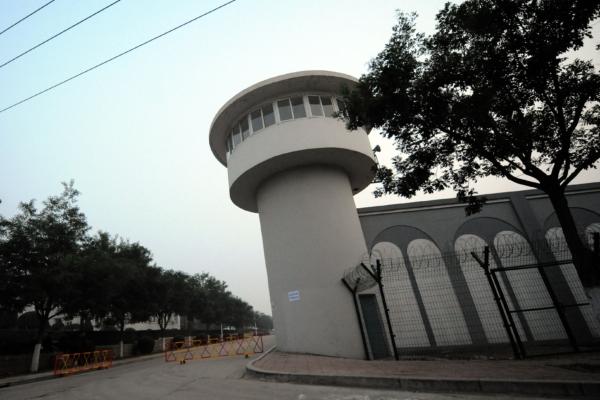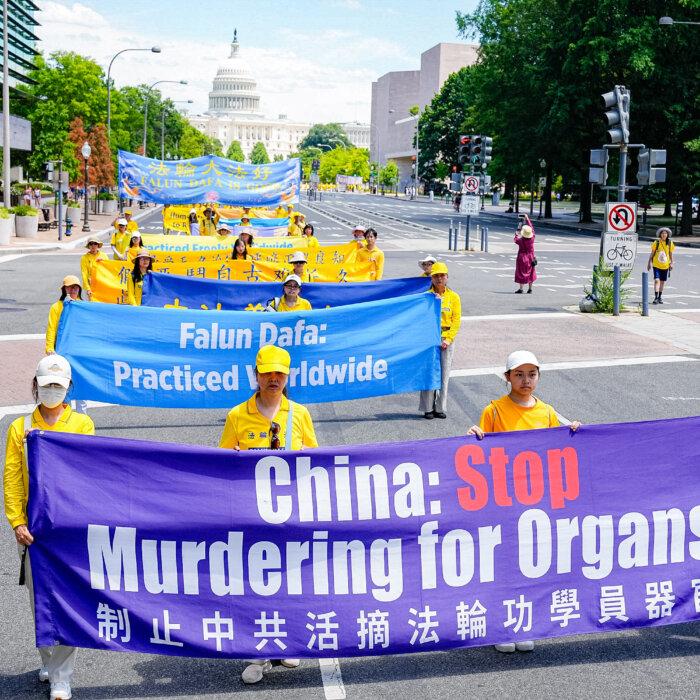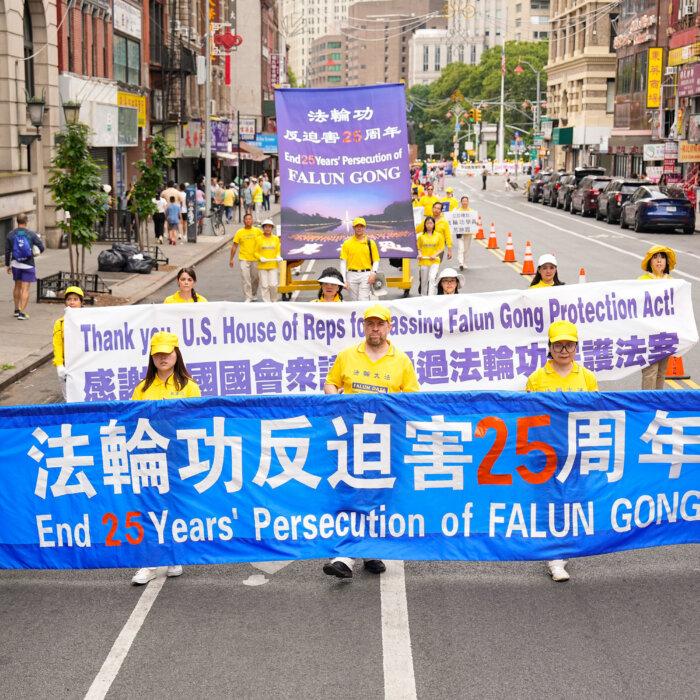Several high-ranking officials in China’s prison system are being investigated for undisclosed reasons, many of whom were allegedly involved in persecuting Falun Gong practitioners, according to a rights group.
Moreover, under the Chinese Communist Party’s (CCP’s) rule, prisons have not only engaged in forced labor practices but also played a significant role in the regime’s forced organ harvesting from prisoners of conscience to fuel the country’s lucrative transplant industry.
Huang Yuequn, a former Party secretary and warden of Foshan Prison in Guangdong Province, turned himself in to the authorities on June 30. He is currently undergoing a disciplinary review by the Guangdong Provincial Commission for Discipline Inspection and the Supervision Commission and an investigation by the Shaoguan City Supervision Commission.
Li Suijun, a former Party secretary and director of the Henan Provincial Prison Administration Bureau, was placed under disciplinary review on May 28. An ongoing investigation is being carried out by the Henan Provincial Commission for Discipline Inspection and the Supervision Commission.
Li Jingping, a Party committee member and deputy director of the Shandong Provincial Prison Administration Bureau, was placed under disciplinary review on April 9 and is currently being investigated by the Shandong Provincial Commission for Discipline Inspection and the Supervision Commission.
The authorities have not disclosed specific reasons for these probes but cited serious violations of discipline and law.
Falun Gong Persecution
Falun Gong, also known as Falun Dafa, is a spiritual practice consisting of slow meditative exercises and moral teachings based on the principles of truthfulness, compassion, and forbearance. It was introduced to the public in China in 1992 and became immensely popular, with about 70 million to 100 million people having taken up the practice by the end of the decade, according to official estimates at the time.Mr. Huang previously served as political commissar at Sihui Prison in Guangdong, infamous for its mistreatment of Falun Gong detainees, according to WOIPFG reports. This prison has a special section dedicated to persecuting Falun Gong practitioners, and many have been detained and tortured there.
Methods that have been used against detainees included forced brainwashing, physical abuse, solitary confinement, handcuffing and shackling, electric shocks, and forced injections of unknown drugs or mixing such drugs into drinking water, causing symptoms such as weakness and hallucinations, reported WOIPFG.
According to the rights group, Mr. Huang was suspected of participating in the persecution of numerous Falun Gong practitioners.
Mr. Li Suijun, now retired for eight years, has also been repeatedly listed by WOIPFG as a rights violator. During his tenure as deputy director of the Henan Provincial Department of Justice and director of the Prison Administration Bureau, he was primarily responsible for the persecution of Falun Gong practitioners Chen Zhenping, Zhao Xilian, Wang Junying, Zhang Furong, Liu Qingying, and Wang Ling, and for the death of practitioner Fu Jinqian due to mistreatment.
The Zhengzhou Prison and the Henan Provincial Women’s Prison in Henan Province are notorious for persecuting Falun Gong practitioners, and Mr. Li Suijun was the head of these prisons, according to WOIPFG.
According to Minghui.org, a website documenting the persecution of Falun Gong, during Mr. Li Jingping’s tenure, Shandong Province’s prisons were accused of severe mistreatment of Falun Gong practitioners that resulted in multiple deaths.
Last year alone, several top prison officials—including Li Jingyan of Guangdong Province and Yu Airong of Jiangsu Province—faced investigations or legal proceedings for various alleged crimes such as embezzlement, bribery, and “serious violations of discipline and law.”
Other officials placed under investigation for similar crimes in recent years include Shi Ying of Henan Province (2022), Ma Lin of Yunnan Province (2021), and Xu Hongguang, former director of Inner Mongolia’s Prison Administration Bureau (2020).
Forced Labor in Chinese Prisons
The CCP-run prisons and labor camps have systematically exploited prisoners of conscience as slave laborers for years, with their products often exported internationally, creating a sprawling industrial network.This matter received global attention in 2012 when Julie Keith, an Oregon resident, discovered a message hidden inside a Chinese-made Halloween decoration she purchased. The letter was from the late Falun Gong practitioner Sun Yi, who had been imprisoned in Masanjia Labor Camp in China’s Liaoning Province.
The letter read: “If you occasionally buy this product, please kindly resend this letter to the World Human Right Organization. Thousands [of] people here who are under the persicution [sic] of the Chinese Communist Party Government will thank you and remember you forever.”
The letter stated that prisoners were required to toil for 15-hour shifts without reprieve; otherwise, they would face physical and verbal abuse. They were paid 10 yuan per month (about $1.38), and most of the slave workers were Falun Gong practitioners, the letter stated.
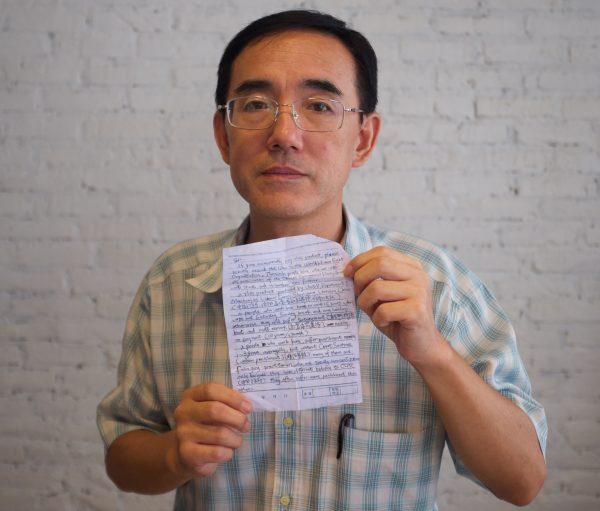
Mr. Sun, a native of Shaanxi Province, later recounted his experiences in the documentary “Letter From Masanjia,” which garnered international acclaim. Mr. Sun, who began exposing the CCP’s abuses after fleeing China in 2015, passed away under suspicious circumstances in Indonesia.
Another example is Taiwanese democracy activist Lee Ming-che, who spent five years in Chishan Prison in Hunan Province and was released in April 2022. At a press conference the following month in Taiwan, Mr. Lee said he had been forced to produce a minimum of 200 pairs of gloves daily, working 13 hours per day, seven days a week, for a paltry daily wage of 48 cents.
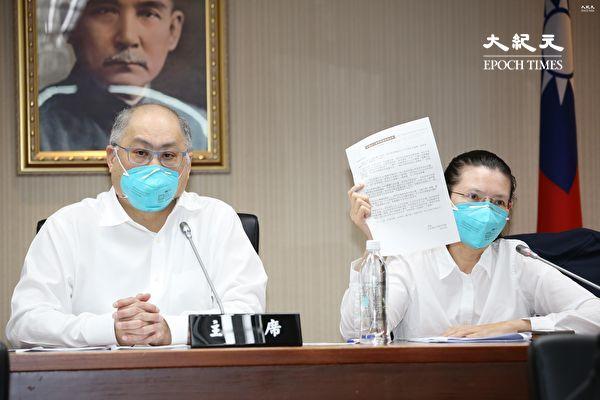
CCP Prisons Involved in Organ Harvesting
Since the CCP began its persecution of Falun Gong in 1999, allegations of large-scale organ harvesting from prisoners of conscience have surfaced, revealing a lucrative industry within China’s prison system.In 2019, the China Tribunal, an independent people’s tribunal based in London, concluded that the regime had been forcibly harvesting organs from prisoners of conscience for years “on a substantial scale,” with Falun Gong practitioners being the primary source of organs.
The practice of forced organ harvesting has since extended beyond Falun Gong practitioners. In 2015, prison police officer Liu Shuo publicly accused Guangdong Province’s Sihui Prison of systematically harvesting organs from prisoners for profit under the leadership of former deputy warden Luo Zubiao for a decade.
Mr. Liu’s account of what took place was posted on an online Chinese forum, detailing a process in which healthy prisoners, typically from impoverished and remote areas with minimal contact with the outside world, were selected as “donors.” These prisoners were then transferred to a tightly controlled team to facilitate their “accidental deaths,” ensuring minimal suspicion due to high mortality rates within these units, he wrote.
After the organs were removed and sold, Mr. Luo and his team allegedly falsified the cause of death, often citing sudden illness, failed rescue attempts, or suicide, according to Mr. Liu. The prison hospital would also issue natural death certificates signed by Mr. Luo. Because the prisoners’ families lived far away, the authorities would cremate the bodies to destroy evidence of foul play before the families had time to arrive and view the bodies of their loved ones, Mr. Liu said.
